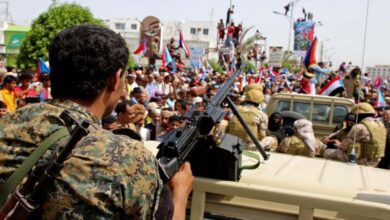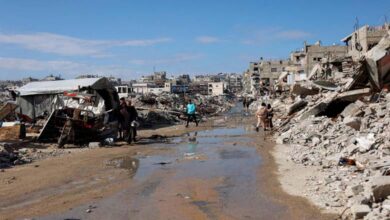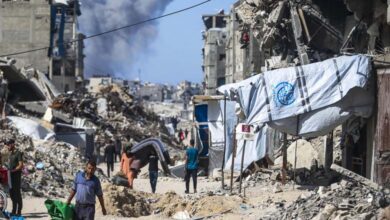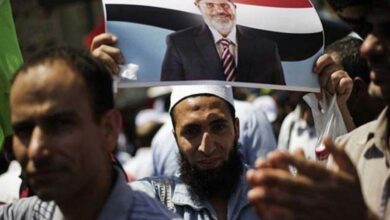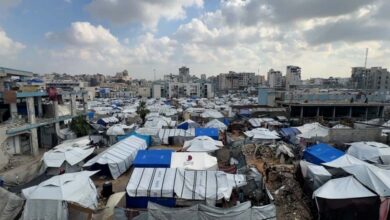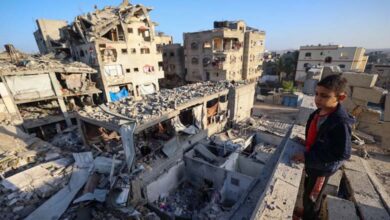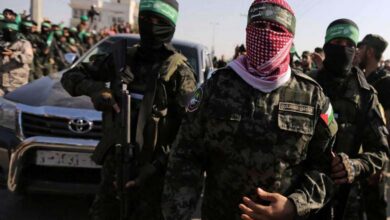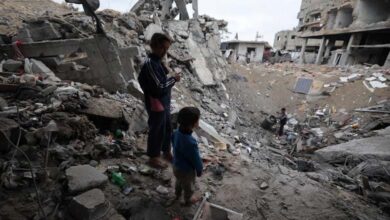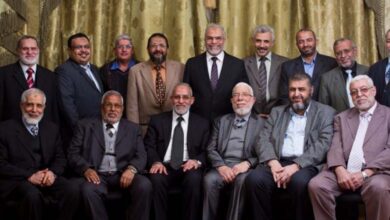Hezbollah hesitates to open a second front amid internal and external pressures
Hassan Nasrallah is expected to address the approach the party will take in the coming period to confront Israel, with the ongoing escalation in the Gaza Strip.
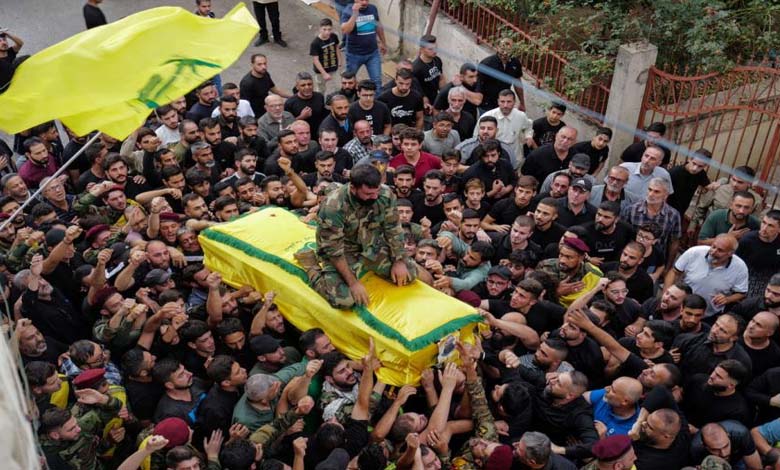
Many media reports and data indicate hesitation within the Lebanese Hezbollah party to open a new front against Israel to alleviate pressure on the Gaza Strip and its ally, Hamas, which has been engaged in fierce battles with the Israeli army since October 7. However, this hesitation creates internal pressure and rare criticisms from Palestinian factions.
It is expected that the leader of Hezbollah, Hassan Nasrallah, will address his supporters on the developments next Friday after remaining silent for about 25 days since the events began, which will somewhat clarify the party’s positions.
Nancy Azzaldin, an expert at the Dutch Clingendael Research Center, told the French newspaper Le Monde, “Polarized opinions have begun to take shape within Hezbollah‘s strongholds, putting the party in a sensitive position.”
She explained, “An escalation decision could push the country into a brutal conflict, but a limited response exposes the resistance discourse, its legitimacy, and its mobilization capacity to danger.”
So far, Hezbollah has refrained from opening a new front, targeting Israeli military sites with guided “Cornet” missiles or by shelling settlements near southern Lebanon.
In response, the Israeli army launched attacks that killed 47 fighters of the party, a number that shocked and worried the party’s supporters.
This number also represents about a fifth of the casualties in the wide-scale war with Israel in 2006. Threats from Hezbollah officials, who are allies of Iran, to launch wide-scale attacks in case Israel launches a ground war, remained just words on paper and were not implemented.
Observers believe that this is primarily due to warnings from both Israel and the United States, conveyed directly to the Lebanese government and the party.
It is also believed that Hezbollah‘s decision not to expand the conflict so far comes from not obtaining a green light from the Iranian leadership and the Revolutionary Guard to launch a broader operation, especially after the US administration sent aircraft carriers to the eastern Mediterranean and provided Israel with weapons and ammunition.
The Lebanese government, led by Najib Mikati, fears the deterioration of the security situation and its role in further exacerbating the political and economic situation in a country that still lacks a president due to political disputes. Hamas criticized, albeit mildly, Hezbollah‘s failure to open a second front against Israel.
The movement directed rare criticism at the Lebanese group, as conveyed by its leader, Moussa Abu Marzouq, who said, “We were expecting a lot from Hezbollah.”
Nasrallah seems to have sought to justify his position through meetings with leaders of Hamas and the Islamic Jihad in Lebanon, speaking about coordination to confront the Israeli occupation and alleviate the pressure on the Gaza Strip.


